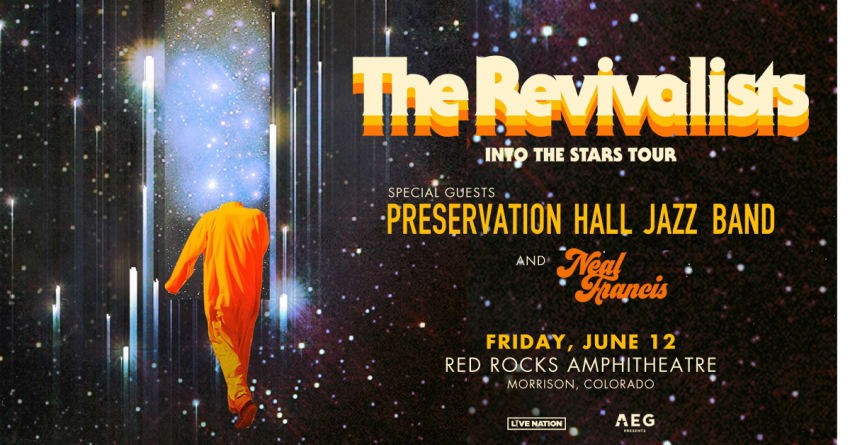Upcoming EDM Events at Red Rocks Amphitheatre in 2025: Get Your Tickets Now!

If you’re an EDM fan, there’s no better place to experience your favorite artists than at the iconic Red Rocks Amphitheatre in Morrison, Colorado. Known for its breathtaking natural acoustics and stunning views, Red Rocks is a bucket-list venue for music lovers worldwide. As we dive into the 2025 season, the lineup of EDM events is already shaping up to be unforgettable. From pulsating beats to immersive light shows, here’s your guide to the hottest upcoming EDM concerts at Red Rocks—and how to secure your tickets today through buytickets.com!
Why Red Rocks Amphitheatre is the Ultimate EDM Destination

Nestled just 10 miles southwest of Denver, Red Rocks Amphitheatre combines nature’s beauty with world-class sound quality. The towering red sandstone formations create a natural amphitheater that amplifies every drop and bassline, making it a favorite for EDM artists and fans alike. Whether you’re dancing under the stars or soaking in the Colorado sunset, Red Rocks delivers an experience like no other.
Ready to join the party? Check out the upcoming EDM events below and grab your tickets before they sell out!
2025 EDM Events at Red Rocks Amphitheatre
Here’s a rundown of the must-see EDM shows announced so far for 2025 at Red Rocks. Keep in mind that more events are added regularly, so bookmark this page and check back for updates!
Skrillex – May 13, 2025

Get ready for an epic night with Skrillex, the king of bass-heavy beats. He’s returning to Red Rocks with a legendary five-hour set that promises to shake the rocks. Tickets go on sale Friday, April 4, 2025, at 1 PM MT. Don’t miss your chance to witness this EDM icon live!
- Date: May 13, 2025
- Tickets: On sale April 4, 2025, at 1 PM MT
- Buy Tickets: Get Skrillex Tickets
Madeon – October 3, 2025

Madeon is bringing a brand-new live show to Red Rocks, complete with fresh music and an innovative performance. This is the premiere of a new era for the French DJ and producer, making it a can’t-miss event for EDM enthusiasts. Tickets go on sale Friday, March 28, 2025, at 10 AM MT.
- Date: October 3, 2025
- Tickets: On sale March 28, 2025, at 10 AM MT
- Buy Tickets: Get Madeon Tickets
Martin Garrix – October 23, 2025

Dance the night away with Martin Garrix, one of the biggest names in EDM. Known for hits like “Animals” and “Scared to Be Lonely,” Garrix will turn Red Rocks into a massive party. Tickets go on sale Friday, April 4, 2025, at 10 AM MT.
- Date: October 23, 2025
- Tickets: On sale April 4, 2025, at 10 AM MT
- Buy Tickets: Get Martin Garrix Tickets
Day of the Deadmau5 – November 7 & 8, 2025

Deadmau5 is back with his fan-favorite “Day of the Deadmau5” event, taking over Red Rocks for two nights of mind-blowing visuals and signature progressive house vibes. Mark your calendars—tickets go on sale Thursday, April 3, 2025, at 10 AM MT.
- Dates: November 7 & 8, 2025
- Tickets: On sale April 3, 2025, at 10 AM MT
- Buy Tickets: Get Day of the Deadmau5 Tickets
How to Buy Tickets for Red Rocks EDM Events
Don’t wait until the last minute—Red Rocks shows sell out fast, especially for EDM heavyweights like Skrillex, Madeon, Martin Garrix, and Deadmau5. The easiest way to secure your spot is through buytickets.com, a trusted platform for Red Rocks Amphitheatre tickets. Here’s how to get started:
- Visit buytickets.com: Head to the site and search for “Red Rocks Amphitheatre” or your favorite artist.
- Choose Your Event: Select the EDM show you want to attend from the list of upcoming events.
- Pick Your Seats: Browse available tickets and choose your preferred seating or general admission option.
- Checkout Securely: Complete your purchase with confidence, knowing buytickets.com offers a full refund (minus shipping) if an event is canceled without rescheduling.
Pro Tip: Sign up for presale access where available—like for Day of the Deadmau5—to snag tickets before the general public!
Plan Your Red Rocks EDM Experience

Attending an EDM event at Red Rocks is more than just a concert—it’s an adventure. Here are a few tips to make the most of your night:
- Arrive Early: Parking is included with your ticket and opens 30 minutes before doors (sometimes earlier for select shows). Beat the traffic and get a prime spot!
- Stay Hydrated: At 6,450 feet above sea level, hydration is key. Bring a factory-sealed water bottle (up to 32 oz) to keep the energy going.
- Check the Rules: No amplified music, climbing, or overnight camping is allowed. Review the full list of permitted and prohibited items on the Red Rocks website.
Don’t Miss Out—Get Your Tickets Today!
The 2025 EDM season at Red Rocks Amphitheatre is heating up, and tickets are already in high demand. Whether you’re vibing to Skrillex’s bass drops, exploring Madeon’s new sound, raging with Martin Garrix, or celebrating Day of the Deadmau5, there’s something for every EDM fan. Head to buytickets.com now to secure your tickets and get ready for an unforgettable night under the Colorado stars!
Have a favorite EDM artist you’re hoping to see at Red Rocks? Let us know in the comments below, and stay tuned for more updates as the 2025 lineup grows!








You must be logged in to post a comment.